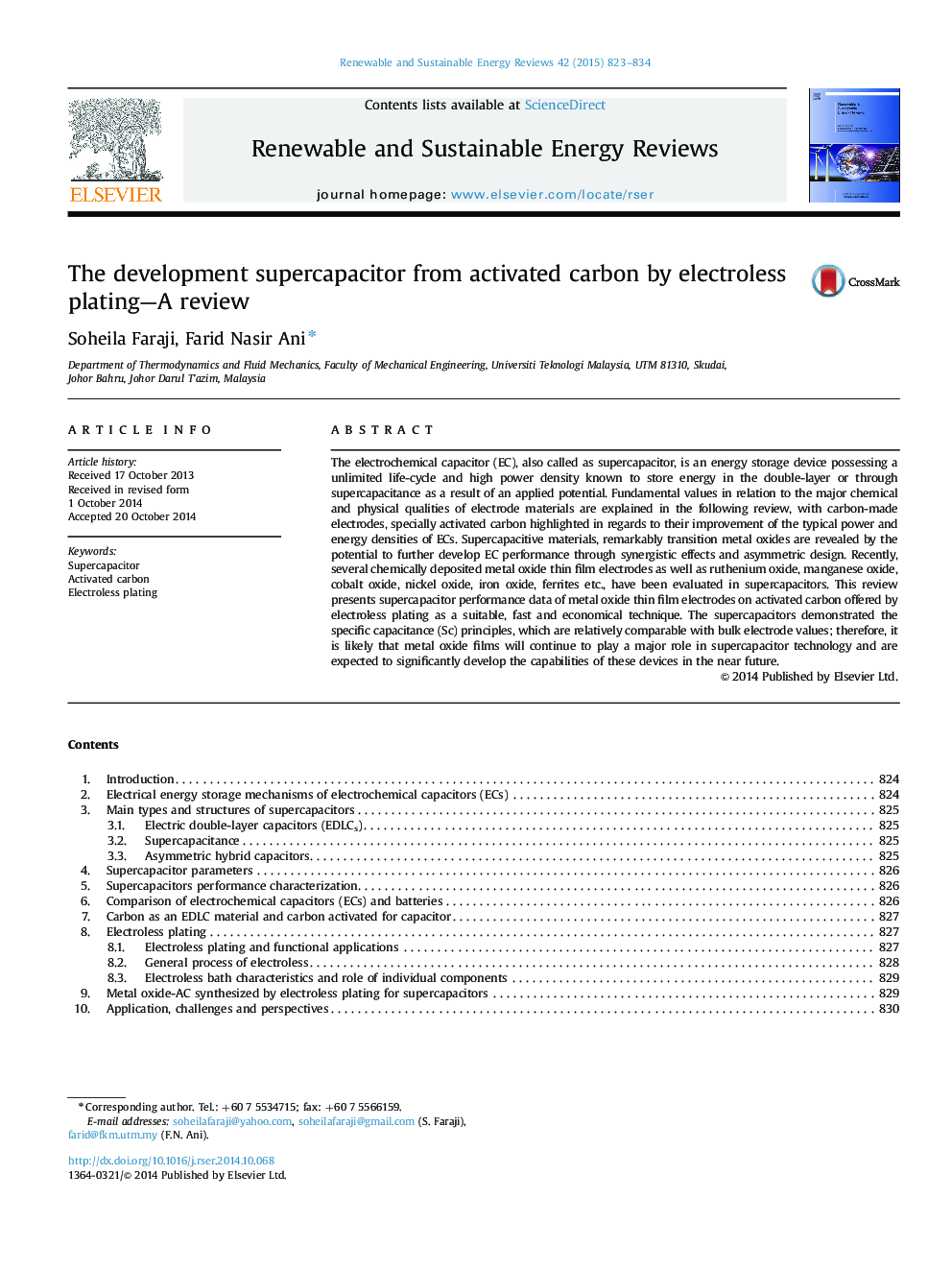| Article ID | Journal | Published Year | Pages | File Type |
|---|---|---|---|---|
| 8117993 | Renewable and Sustainable Energy Reviews | 2015 | 12 Pages |
Abstract
The electrochemical capacitor (EC), also called as supercapacitor, is an energy storage device possessing a unlimited life-cycle and high power density known to store energy in the double-layer or through supercapacitance as a result of an applied potential. Fundamental values in relation to the major chemical and physical qualities of electrode materials are explained in the following review, with carbon-made electrodes, specially activated carbon highlighted in regards to their improvement of the typical power and energy densities of ECs. Supercapacitive materials, remarkably transition metal oxides are revealed by the potential to further develop EC performance through synergistic effects and asymmetric design. Recently, several chemically deposited metal oxide thin film electrodes as well as ruthenium oxide, manganese oxide, cobalt oxide, nickel oxide, iron oxide, ferrites etc., have been evaluated in supercapacitors. This review presents supercapacitor performance data of metal oxide thin film electrodes on activated carbon offered by electroless plating as a suitable, fast and economical technique. The supercapacitors demonstrated the specific capacitance (Sc) principles, which are relatively comparable with bulk electrode values; therefore, it is likely that metal oxide films will continue to play a major role in supercapacitor technology and are expected to significantly develop the capabilities of these devices in the near future.
Related Topics
Physical Sciences and Engineering
Energy
Renewable Energy, Sustainability and the Environment
Authors
Soheila Faraji, Farid Nasir Ani,
